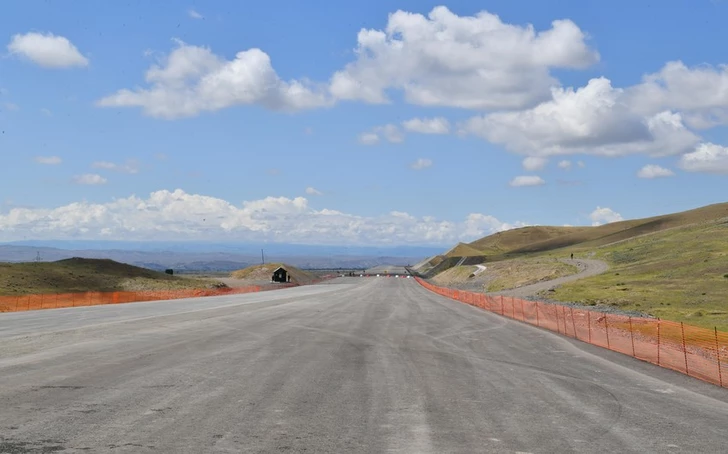BAKU, July 25 — A new analytical report commissioned by Uzbekistan’s Ministry of Transport argues that the planned Zangezur Corridor—a 43‑kilometer rail link connecting mainland Azerbaijan with the Nakhchivan Autonomous Republic—could dramatically reshape freight routes between Asia and Europe.
A Faster Alternative to Baku–Tbilisi–Kars
Today, cargo moving westward travels roughly 250 km through Georgia on the Baku–Tbilisi–Kars (BTK) line. Once tracks are laid to Azerbaijan’s border village of Agbend, the Zangezur route would shave 343 km off the journey between Azerbaijan and Turkey, trimming transit times by about one full day and lowering costs, the report notes.
Complementary, Not Competing
Analysts stress that Zangezur would complement—not replace—BTK: together the two lines would expand the South Caucasus transit network and add redundancy for shippers.
Ripple Effects Across Eurasia
Central Asia could gain a shorter land bridge to Turkey, Romania and Bulgaria.
Asian exporters would enjoy a streamlined, all‑rail path into European markets, boosting demand for regional logistics services.
For Azerbaijan, the corridor is a top priority, but the report says Armenia and Iran stand to benefit as well. Reviving the Soviet‑era Julfa hub would link Baku, Yerevan and Tehran by rail.
A wider Kars–Gyumri–Nakhchivan–Megri–Baku corridor would also restore direct rail service between Turkey and its eastern neighbors, deepening economic ties across the region.
If completed, the authors conclude, the Zangezur Corridor could become a strategic artery for Eurasian trade—shortening distances, cutting costs, and elevating the South Caucasus as a critical transit gateway.


